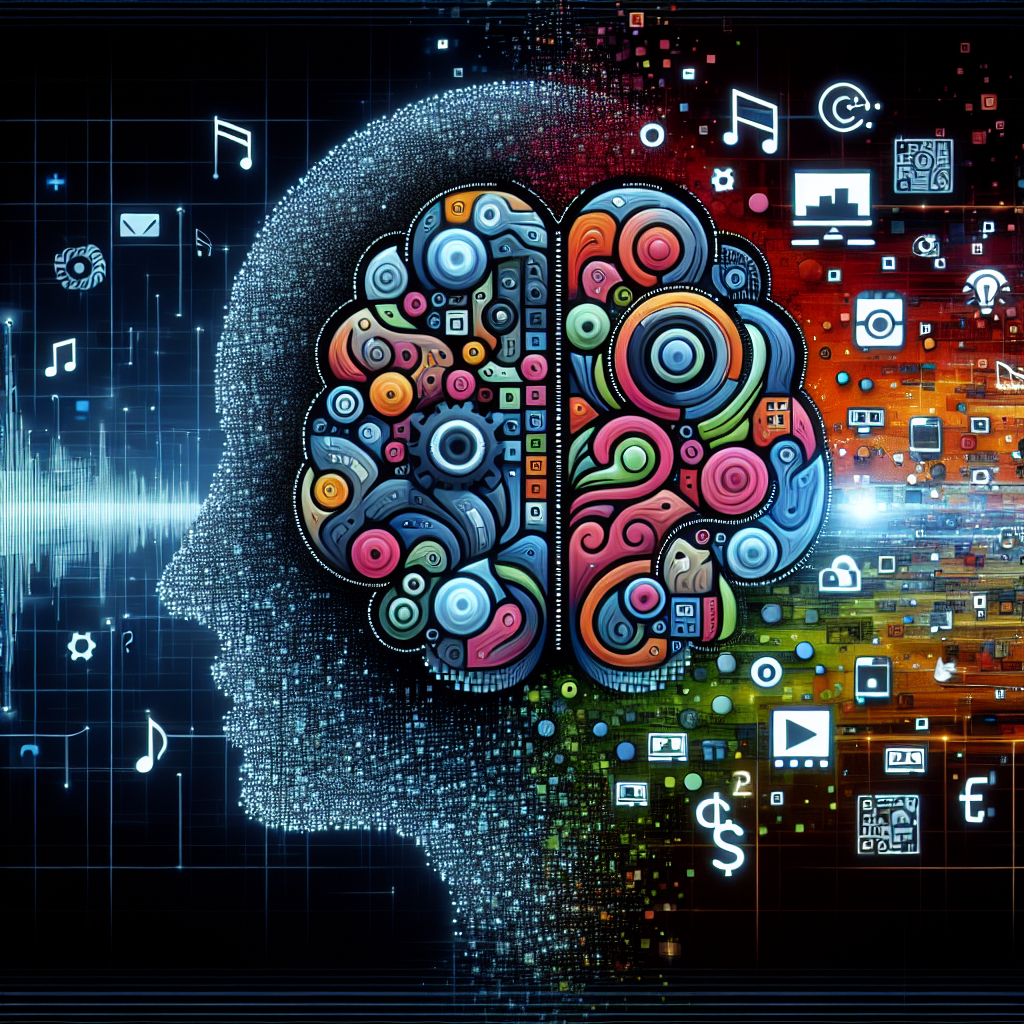Artificial intelligence (AI) has become increasingly prevalent in the field of content creation, revolutionizing the way content is produced and consumed. From personalized recommendations to automated content generation, AI is shaping the way we interact with digital content. In this article, we will explore the influence of AI on content creation and consumption habits and its implications for the future of the media industry.
Content Creation
AI has significantly impacted the way content is created, making the process more efficient and cost-effective. One of the key areas where AI has made a significant impact is in the field of automated content generation. AI-powered tools can now generate articles, reports, and even videos based on data inputs, eliminating the need for human writers and editors. This not only saves time and resources but also enables organizations to produce content at scale.
Another way AI is influencing content creation is through the use of natural language processing (NLP) and machine learning algorithms. These technologies allow content creators to analyze data and trends, identify key insights, and generate data-driven content that resonates with their audience. This enables organizations to create more engaging and relevant content that drives user engagement and loyalty.
AI is also being used to enhance the creative process by providing content creators with tools and resources that help them generate ideas, brainstorm concepts, and refine their work. For example, AI-powered tools can analyze text, images, and videos to identify patterns, trends, and themes that can inspire content creation. This not only helps content creators streamline their workflow but also fosters creativity and innovation.
Content Consumption Habits
AI has also had a profound impact on how content is consumed, shaping the way users interact with digital media. One of the key ways AI is influencing content consumption habits is through personalized recommendations. AI-powered algorithms analyze user data, preferences, and behavior to deliver personalized content recommendations that are tailored to individual interests and preferences. This not only enhances user experience but also increases engagement and retention.
AI is also changing the way content is discovered and consumed through voice-activated devices and virtual assistants. Users can now access content through voice commands, enabling hands-free browsing and interaction. This not only makes content consumption more convenient but also opens up new opportunities for content creators to reach and engage with their audience.
Another way AI is influencing content consumption habits is through content curation and aggregation. AI-powered platforms and tools can now aggregate, organize, and recommend content from various sources, making it easier for users to discover and consume content that is relevant and engaging. This not only saves users time and effort but also helps content creators reach a wider audience.
Implications for the Future
The influence of AI on content creation and consumption habits has far-reaching implications for the future of the media industry. As AI continues to evolve and improve, we can expect to see more automated content generation, personalized recommendations, and innovative content formats that cater to the changing needs and preferences of users.
One of the key implications of AI on content creation is the democratization of content production. AI-powered tools enable individuals and organizations to create and distribute content at scale, leveling the playing field and empowering creators to reach a global audience. This has the potential to transform the media landscape, giving rise to new voices, perspectives, and ideas that were previously marginalized or overlooked.
AI is also reshaping the business models of content creators and publishers. With the rise of automated content generation and personalized recommendations, traditional revenue streams such as advertising and subscriptions are being reimagined. Content creators are now exploring new monetization strategies, such as sponsored content, affiliate marketing, and pay-per-view models, to capitalize on the growing demand for personalized and engaging content.
FAQs
Q: How is AI influencing content creation?
A: AI is revolutionizing content creation by enabling automated content generation, data-driven insights, and creative tools that help content creators streamline their workflow and enhance their output.
Q: What are some examples of AI-powered content creation tools?
A: Some examples of AI-powered content creation tools include natural language processing (NLP) algorithms, machine learning models, and image and video analysis tools that help content creators generate ideas, analyze trends, and create engaging content.
Q: How is AI shaping content consumption habits?
A: AI is influencing content consumption habits by providing personalized recommendations, voice-activated devices, and content curation tools that help users discover, access, and consume content that is tailored to their interests and preferences.
Q: What are the implications of AI on the future of the media industry?
A: The influence of AI on content creation and consumption habits has far-reaching implications for the future of the media industry, including the democratization of content production, the reshaping of business models, and the rise of new monetization strategies.
In conclusion, the influence of AI on content creation and consumption habits is reshaping the way we interact with digital media. From automated content generation to personalized recommendations, AI is revolutionizing the media industry and opening up new opportunities for creators and consumers alike. As AI continues to evolve and improve, we can expect to see more innovative content formats, personalized experiences, and diverse voices that reflect the changing landscape of digital media.

